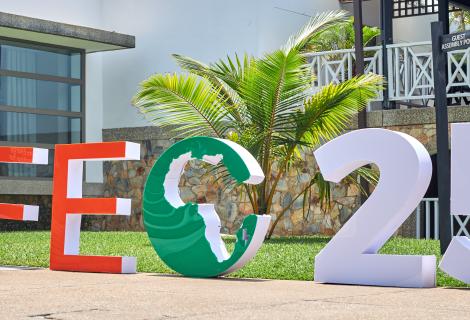ActionAid Ghana Pushes for Inclusive Financing in Energy Transition at FEC 2025

ActionAid Ghana has called for urgent reforms in the financing of Ghana's energy transition to ensure it is inclusive, people-centered, and supportive of food sovereignty. This call was made during a side event hosted by the organization at the Future of Energy Conference (FEC) 2025, themed “Financing a Just Green Energy Transition for Sustainable Food Sovereignty.”
The event gathered policymakers, academics, civil society organizations, corporate actors, and youth innovators to discuss how Ghana can mobilize appropriate financing for its clean energy transition while safeguarding food systems.
Financing Gaps in the Energy Transition
Ghana’s Energy Transition and Investment Plan (GETIP) estimates that the country will require $562 billion by 2070 to fully transition to renewable energy. However, the government has committed only 12% of this amount, leaving the majority of financing reliant on international development finance and private sector investment. With over 40% of government revenue currently allocated to debt servicing, participants warned that dependence on external financing could compromise sustainability.
“Without energy security, there can be no food security,” stated Dr. Robert Bright Mawuko Sogbadji from the Ministry of Energy, emphasising that renewable solutions are essential for reducing post-harvest losses, which currently stand at nearly 30% nationwide.
Linking Energy and Food Sovereignty
Speakers highlighted that Ghana's food system heavily relies on energy for irrigation, processing, storage, and transportation. Yet, renewables account for less than 2% of the national energy mix, far below the 10% target set for 2030. The dialogue underscored the need for women farmers, who produce over 70% of Ghana's food, to be central to this transition.
At ActionAid Ghana, we strongly believe that women and vulnerable communities should not be left behind. They must be leaders, not just beneficiaries, of green energy transition.
Call to Action
The panel, which also included Dr. Kwadwo Gyasi Santo from the University of Energy and Natural Resources and Mr. Deladem Kojo Xonu from Ebapreneur Solutions Limited, made several recommendations, including:
- The government should incentivize renewable-powered post-harvest solutions and implement the Green Energy Transition Framework.
- Local banks must create long-term, affordable financing products to reduce reliance on foreign funds.
- Academia should expand research into affordable, context-specific green technologies.
- Civil society must continue to advocate for accountability and grassroots participation.
- Corporate Ghana is encouraged to channel investments and corporate social responsibility (CSR) funding into renewable energy initiatives.
Deladem Kojo Xonu, further reiterated how the youth in Ghana are committed to developing community-centered clean energy solutions that not only reduce emissions but also empower local livelihoods and enhance food systems, especially the ebapreneur solutions limited.
Way Forward
AAG has over the past three decades worked to eradicate poverty and achieve social justice, gender equality, and a just, fair, and sustainable world by working with people living in poverty, their communities, and social movements to achieve a significant redistribution of power and resources. At this years Future for Energy Conference, ActionAid Ghana reaffirmed its commitment to advancing community-centered clean energy solutions that connect food sovereignty with climate justice.
“This transition is not just about powering homes; it is about powering farms, feeding families, and building resilience for generations,” ~Eugenia Ayagiba.
Ghana's green energy future must be just, inclusive, and driven by the people.
By Jacqueline Parditey.